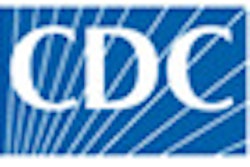
NEW YORK (Reuters Health) - Cancer of the back of the mouth and throat is on the rise, primarily because of more cases stemming from a viral infection called human papillomavirus (HPV), researchers report in a new study.
The number of people who were diagnosed with HPV-related oral cancer in 2004 was triple the number diagnosed in 1988, due largely, researchers suspect, to changes in sexual behavior that have helped spread the virus.
HPV is a very common sexually transmitted infection that can cause genital warts and certain cancers, including of the cervix, anus and penis.
Dr. Maura Gillison at the Ohio State University and her colleagues examined oral cancer tissue collected from 271 patients over a 20-year period.
The type of cancer they examined, called oropharyngeal, originates in the back of the tongue, the soft part of the roof of the mouth, the tonsils, or the sides of the throat.
They checked the samples for evidence of HPV infection and found that the HPV-related cases became more and more common each decade, while those samples that didn't test positive for the virus became less common.
From these results, the researchers estimate that HPV-related oral cancers now afflict 26 out of every million people in the U.S., compared to eight out of every million people in 1988.
Dr. Tina Dalianis, a professor at the Karolinska Institute in Sweden who did not participate in this research, said she believes the increase in oral cancers "is due to an HPV epidemic."
"We believe that sexual habits have changed, and that there is an increase in sexual activity earlier on in life, with an exchange of many more sex partners in general," she wrote in an email to Reuters Health.
The current study, published in the Journal of Clinical Oncology, confirms what Dalianis had found previously in Sweden, that HPV-related oral cancers were becoming the dominant form of the disease.
Previously, tobacco had been the primary cause of oral cancer, and most oral cancer cases were HPV-negative.
Gillison's group found that HPV-negative cancers have been cut in half since the 1980s.
HPV-positive cases -- which had made up just 16% of oral cancer cases in the 1980s -- comprised more than 70% in the 2000s.
"This whole relationship between HPV-related head and neck cancer completely changes our ideas of who is at risk, how to treat the cancer, the prognostics of the cancer, and prevention," Gillison told Reuters Health.
The good news is that people diagnosed with the HPV-positive form of the cancer have a better prognosis, she said, and the cancer is more responsive to treatment.
There is also a potential opportunity for prevention using an HPV vaccine that is approved to prevent anal and cervical cancer, Gillison said.
If the vaccine can prevent these HPV-caused cancers, perhaps it can work for oropharyngeal cancers too, she added.
Gillison and her colleagues have received research funds or consulting jobs through the companies that sell HPV vaccines, and one of the companies is a financial contributor to an organization that helped to fund this study.
The vaccines are not proven to prevent oral cancer, and Gillison said it will be important to test whether they are effective for this increasingly common form.
By Kerry Grens
Source: https://bit.ly/gPtMdm
Journal of Clinical Oncology, online October 3, 2011.
Last Updated: 2011-10-03 16:00:50 -0400 (Reuters Health)
Copyright © 2011 Reuters Limited. All rights reserved. Republication or redistribution of Reuters content, including by framing or similar means, is expressly prohibited without the prior written consent of Reuters. Reuters shall not be liable for any errors or delays in the content, or for any actions taken in reliance thereon. Reuters and the Reuters sphere logo are registered trademarks and trademarks of the Reuters group of companies around the world.



















